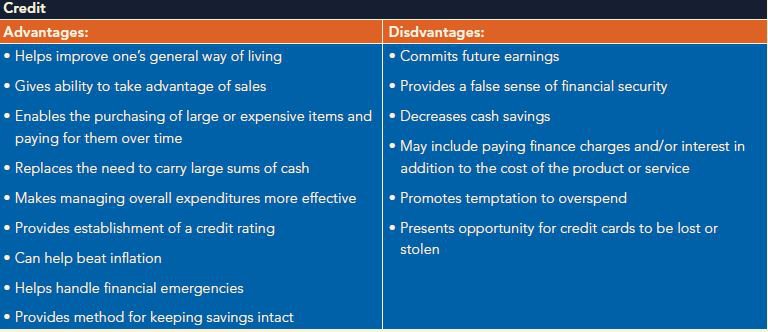Unlocking the Advantages of Cooperative Credit Union: Your Guide
In the realm of economic organizations, lending institution stand as a distinctive and typically underexplored choice for those looking for a much more customized strategy to financial. As we explore the details of cooperative credit union, a world of opportunities and benefits unravels, using a glance right into a financial landscape where neighborhood values and member-focused solutions take center phase. From their simple starts to their contemporary impact, recognizing the essence of cooperative credit union can potentially improve the means you check out and manage your finances.

Background of Cooperative Credit Union
Cooperative credit union have an abundant background rooted in the cooperative activity, dating back to the 19th century. The concept of lending institution became a reaction to the financial requirements of people that were underserved by standard financial institutions. Friedrich Wilhelm Raiffeisen, a German mayor, is typically attributed with starting the very first contemporary lending institution in the mid-1800s (Wyoming Credit Unions). Raiffeisen developed cooperative borrowing cultures to help farmers and country neighborhoods accessibility affordable credit rating and escape the clutches of usurious lending institutions.
The concept of people integrating to pool their resources and supply financial support per various other spread swiftly across Europe and later on to North America. In 1909, the initial lending institution in the USA was established in New Hampshire, marking the start of a brand-new period in community-focused financial. Ever since, credit rating unions have remained to focus on the economic well-being of their participants over profit, symbolizing the cooperative concepts of self-help, self-responsibility, democracy, solidarity, equal rights, and equity.
Membership Qualification Standards
Having actually established a structure rooted in participating principles and community-focused financial, cooperative credit union keep specific membership eligibility requirements to make certain placement with their core worths and purposes. These requirements often revolve around a typical bond shared by possible participants, which can consist of factors such as geographic location, employer, organizational association, or subscription in a specific area or association. By requiring members to satisfy specific qualification demands, credit history unions intend to promote a feeling of belonging and shared function amongst their members, enhancing the cooperative nature of these banks.
In addition to typical bonds, some lending institution may also extend subscription eligibility to household members of present members or people who reside in the very same family. This inclusivity helps cooperative credit union broaden their reach while still remaining real to their community-oriented values. By keeping clear and clear subscription criteria, cooperative credit union can make certain that their members are proactively engaged in sustaining the participating worths and goals of the institution.
Financial Services And Products
When taking into consideration the variety of offerings available, credit history unions offer a diverse array of monetary products and solutions tailored to satisfy the one-of-a-kind requirements of their participants. Participants frequently profit from personalized customer solution, as credit report unions focus on constructing strong relationships with those they offer.
In addition, credit score unions frequently supply economic education and learning and counseling to assist members improve their monetary proficiency and make informed decisions. Several credit rating unions also take part in common branching networks, websites allowing participants to access their accounts at a range of places across the country. Generally, the variety of economic services and products supplied by lending institution underscores their commitment to meeting the diverse requirements of their members while prioritizing their economic well-being.
:max_bytes(150000):strip_icc()/GettyImages-184268471-5bcba6ad46e0fb0051ae6958.jpg)
Advantages Over Typical Banks
Demonstrating an unique approach to economic services, credit report unions supply numerous benefits over typical financial institutions. Furthermore, credit history unions are known for their affordable interest rates on savings accounts, finances, and credit score cards.
Furthermore, lending institution tend to have a solid emphasis on economic education and learning and neighborhood assistance. They usually offer sources and workshops to assist members improve their economic proficiency and make sound money management choices click here now (Wyoming Credit Unions). By fostering a feeling of community and shared objectives, credit report unions can develop a more inclusive and helpful financial environment for their members
Community Participation and Social Effect

In addition, debt unions typically companion with neighborhood organizations and charities to sustain numerous social reasons such as affordable real estate, education, and health care. By working together with these entities, lending institution can intensify their social influence and address critical concerns impacting their areas. This collaborative approach not just advantages those in demand yet additionally reinforces the social textile of the community by promoting a sense of unity and assistance amongst its participants. Essentially, credit unions act as drivers for positive adjustment, driving community growth and social progression with their energetic participation and impactful campaigns.
Conclusion
In conclusion, credit unions have an abundant background rooted in area and teamwork, supplying a diverse series of financial services and products with competitive prices and customized customer support. They focus on the financial health of their participants over earnings, promoting a sense of belonging and providing financial education and learning. By actively engaging in social effect campaigns, lending institution my blog develop a supportive and comprehensive financial atmosphere that makes a favorable difference in both private lives and neighborhoods.
Friedrich Wilhelm Raiffeisen, a German mayor, is frequently attributed with starting the first modern credit union in the mid-1800s - Wyoming Credit. By requiring participants to meet specific qualification demands, credit report unions aim to promote a feeling of belonging and shared purpose amongst their members, strengthening the participating nature of these monetary institutions
Furthermore, debt unions regularly provide monetary education and learning and therapy to aid participants improve their financial proficiency and make notified choices. On the whole, the array of monetary items and services used by credit unions underscores their dedication to fulfilling the diverse demands of their participants while prioritizing their monetary well-being.
In addition, credit unions are known for their competitive interest prices on financial savings accounts, financings, and credit rating cards.